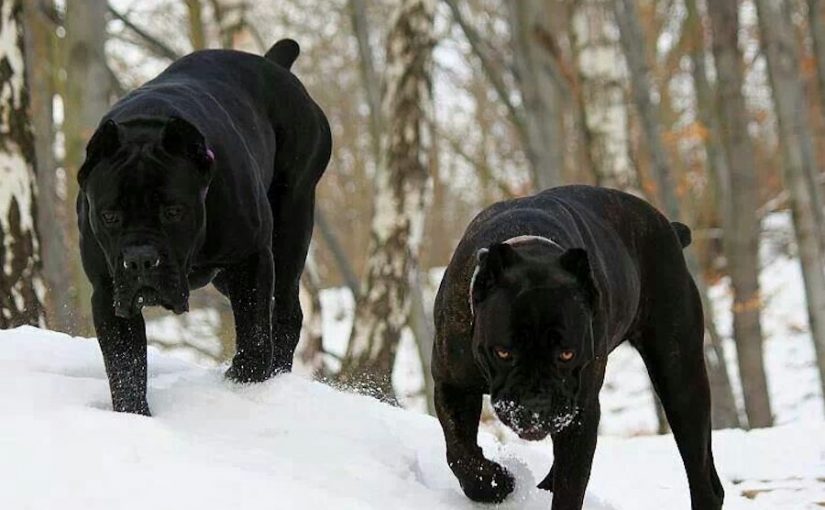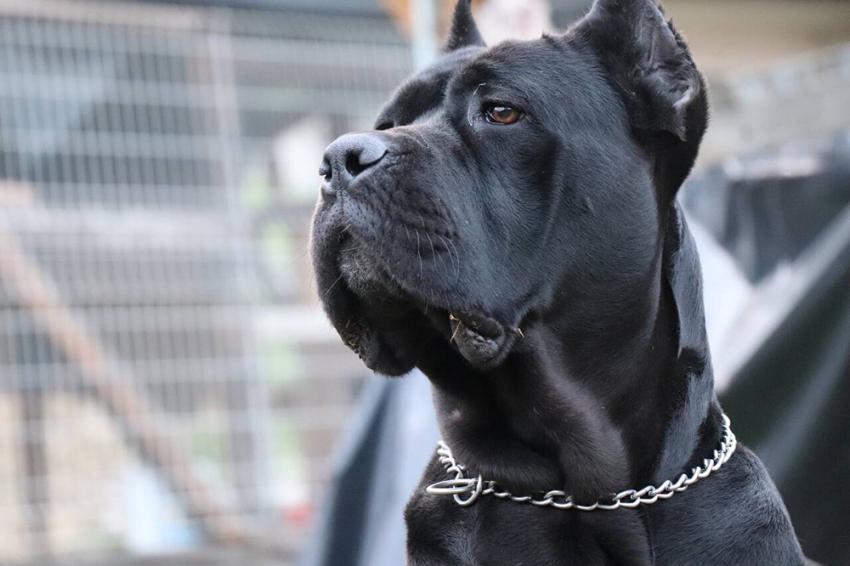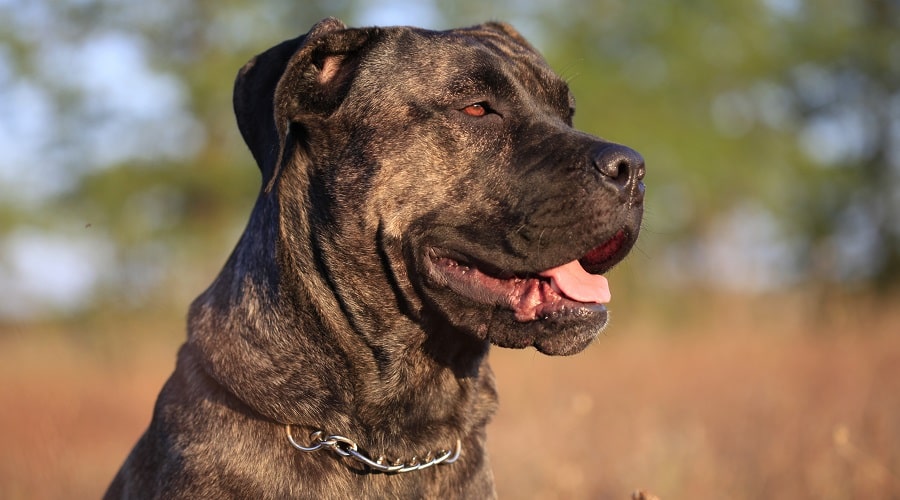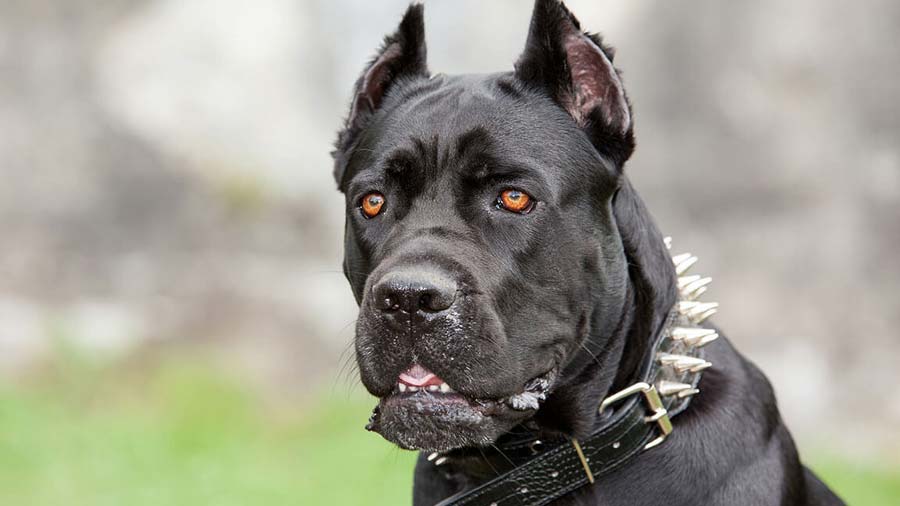Other names: Cane Corso Italiano, Italian Corso Dog and Italian Mastiff.
The Cane Corso is a large dog breed of Southern Italian origins that is used for personal protection, tracking, law enforcement, and as a guard dog.
Description
The Cane Corso is a large Italian Molosser, which is closely related to the Neapolitan Mastiff. In name and form, the Cane Corso predates its cousin the Neapolitan Mastiff. It is well muscled and less bulky than most other Mastiff breeds. The breed is known as a true and quite possibly the last of the coursing Mastiffs. The Cane Corso is typically used as fighting or guard dog (most common) but is great with family and children.

The head of the Cane Corso is arguably its most important feature. It is large and imposing. The forehead should be flat and convergent to the muzzle. The muzzle is flat, rectangular (when viewed from above), and generally as wide as it is long; approximately 33% the total length of the skull (a ratio of 2:1). The eyes are almond in shape, set straight and when viewed from the front, set slightly above the line of the muzzle. Darker eyes are preferred, however, the colour of the eyes tends to emulate the shade of brindling in the coat.
Cane Corso appears in two basic coat colours: black and fawn. This is further modified by genetic pigment dilution to create “blue” (grey, from black) and frumentino or formentino (from fawn, where the mask is blue/grey) colours. Brindling of varying intensity is common on both basic coat colours as well, creating Tigrato (black brindle), and Grigio Tigrato (blue brindle). White markings are common on the chest, tips of toes, the chin, and the bridge of the nose.

A 2017 study of 232 Cane Corso dogs across 25 countries found an average life span of 9.3 years, varying with different coat colours. The longest living were black brindle dogs for 10.3 years followed by brindle dogs for 10.1 years, grey brindle dogs for 9.8 years, fawn dogs for 9.0 years, black dogs for 9.0 years, grey dogs 9.0 years and other colour dogs 8.1 years.
These dogs are docile and affectionate to their owners, loving with children and family, and easily trained. They are an unequalled protector of the owners and their property. They can also be very aggressive toward strangers and difficult to handle from a veterinary standpoint.
The average litter size of Cane Corso is 4 to 6 puppies.
History

The Cane Corso is considered to be a descendant of the old Roman war dog the Canis Pugnax or the Molossian. Its name derives from cane da corso, an old term for those catch dogs used in rural activities for cattle and swine, as distinct from cane da camera which indicates the catch dog kept as a bodyguard. In the recent past, its distribution was limited to some regions of Southern Italy, especially in Basilicata, Campania, and Apulia.
Large similar catch dogs have been present in Italy for centuries observed mainly in artistic representations as those from Bartolomeo Pinelli. At the beginning of the 20th century, this type of dog or landrace was not as well known in their country as before and was presented at a dog show for the first time in 1914 in Milan surprising the show’s judge Fabio Caielli. Caielli and the dog’s owner Mario Monti travelled around Italy looking for dogs of the same type to form a breed.
However, dogs of the old standard continued to exist in a parallel and discreet manner and known by many names including Cane Corso and Dogo de Puglia.
As life changed in the southern Italian rural farms in the 20th century, the Corso began to become rare. A group of enthusiasts as Paolo Breber began recovery activities designed to bring the dog back from near extinction in the late 1970s. By 1994, Today the breed is used as a guardian, protection, tracking and police dog.
